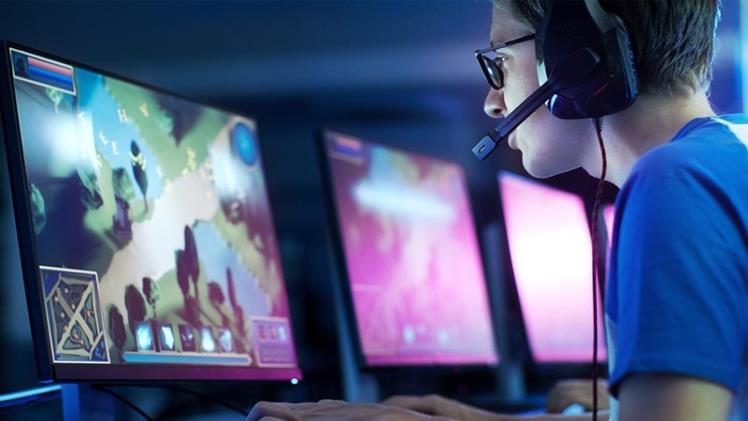Introduction
The landscape of online gaming slot pg mahjong legend has evolved beyond solo adventures, giving rise to a vibrant culture of collaborative play. In the vast and immersive virtual realms of multiplayer games, players from around the world come together to form teams, alliances, and guilds. This article explores the intricate dynamics of team collaboration in online gaming, examining how virtual teamwork enhances player experiences, fosters social connections, and contributes to the evolving culture of online gaming.
Formation of Virtual Teams
Common Objectives:
Online games สล็อต often require players to work towards common objectives, such as completing quests, defeating powerful foes, or achieving in-game goals. These shared objectives become the foundation for the formation of virtual teams, bringing players together with a common purpose.
Diverse Roles and Specializations:
Virtual teams in online games thrive on diversity. Players assume various roles and specializations within a team, each contributing unique skills and abilities. Whether it’s a tank absorbing damage, a healer supporting the team, or damage dealers delivering firepower, the synergy of diverse roles is essential for success.
Communication and Coordination:
Effective communication is paramount in online gaming teams. Players use voice chat, text communication, or in-game tools to coordinate strategies, share information, and react to dynamic situations. Clear and concise communication fosters a collaborative environment, enabling teams to adapt to challenges on the fly.
Building Trust and Camaraderie
Reliance on Teammates:
Success in many online games hinges on the ability of players to rely on their teammates. Trust is built through shared experiences, consistent performance, and a sense of mutual dependence. Players learn to rely on each other’s strengths, creating a bond that goes beyond the virtual world. Check out https://www.sabai999.com/game/.
Joint Triumphs and Challenges:
Overcoming challenges and achieving victories as a team fosters a sense of joint triumph. Whether it’s conquering a formidable boss, completing a challenging raid, or winning a competitive match, the shared sense of accomplishment strengthens the camaraderie among team members.
Team Rituals and Traditions:
Virtual teams often develop their own rituals and traditions, adding a layer of social interaction beyond gameplay. From pre-game rituals to celebratory gestures after a successful mission, these traditions contribute to team identity and reinforce the sense of belonging.
Social Connections and Global Collaboration
Global Player Networks:
Online gaming transcends geographical boundaries, connecting players from diverse cultures and backgrounds. Teams often comprise members from different parts of the world, creating a global melting pot of perspectives, languages, and gaming styles. This diversity enriches the social fabric of virtual teams.
Cross-Cultural Collaboration:
Collaboration in virtual realms exposes players to cross-cultural interactions. Beyond the shared language of the game, players exchange cultural nuances, traditions, and experiences. This cross-cultural collaboration fosters a global gaming community where individuals from various backgrounds come together under a common passion.
Friendships Beyond Borders:
Virtual teams frequently lead to friendships that extend beyond the gaming world. Players form connections with teammates, sharing not only gaming strategies but also personal stories, interests, and experiences. These friendships become a testament to the social impact of online gaming.
Challenges and Conflict Resolution
Differing Playstyles and Strategies:
Virtual teams may face challenges due to differing playstyles and strategies among members. It is common for players to have individual preferences or approaches to gameplay. Effective team dynamics involve open communication and compromise to find a balance that accommodates everyone’s strengths.
Handling Disagreements:
Conflict can arise within virtual teams, whether it’s related to in-game decisions, personal interactions, or strategic differences. Successful teams navigate disagreements with a focus on constructive communication, seeking compromise, and maintaining a shared commitment to the team’s goals.
Leadership and Decision-Making:
Leadership plays a crucial role in guiding virtual teams. Effective leaders foster an inclusive environment, encourage open communication, and make informed decisions that consider the well-being of the team. Decisions are often made collaboratively, with input from all members.
Professional Gaming and Esports Teams
Competitive Team Environments:
The rise of professional gaming and esports has elevated team dynamics to a competitive and organized level. Esports teams operate like professional sports teams, with dedicated coaching staff, strategic planning, and training regimens. The synergy among team members is crucial for success in highly competitive environments.
Team Sponsorship and Endorsements:
Esports teams often attract sponsorships and endorsements, turning virtual teamwork into a lucrative endeavor. Sponsorship deals with gaming-related brands, merchandise sales, and participation in prestigious tournaments contribute to the financial success of esports teams.
Global Fanbase and Spectatorship:
Professional gaming teams garner global fanbases, and competitive matches draw audiences in the millions. The spectacle of esports tournaments showcases the pinnacle of teamwork, strategic prowess, and individual skill. Fans form emotional connections with their favorite teams, adding a layer of community engagement to professional gaming.
Conclusion
The collaboration within virtual teams in online gaming goes beyond mere gameplay—it creates a microcosm of social interactions, friendships, and global connections. As players join forces to conquer virtual challenges, they build trust, share triumphs, and navigate conflicts. The collaborative spirit in online gaming has become a driving force in shaping the culture of the gaming community, transforming virtual realms into dynamic spaces where teamwork is not just a requirement but a catalyst for meaningful social experiences. Whether casual players embarking on epic quests or professional esports teams competing for glory, the art of collaboration in online gaming continues to redefine the way we play, connect, and build communities in the digital age.

